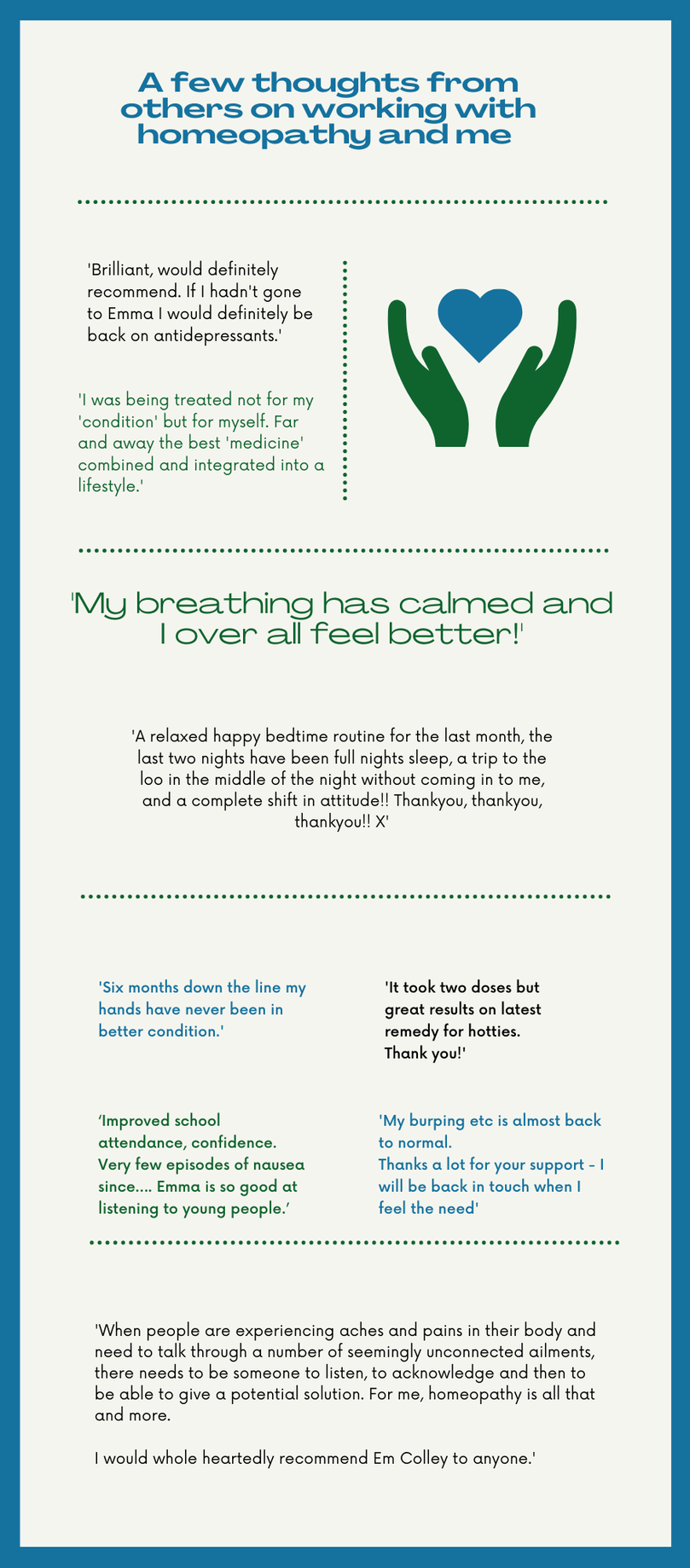|
Homeopathy.
It's a word most of us haven't encountered before. Broken down to the Greek roots (I'm a bit of a word geek too!): Homeo = same; pathos = suffering or disease. Treating like with like. Which is a concept Paracelcus discussed. I guess in the same way that there's nothing new in the world, there's nothing new here either. But what was innovative (thanks Dr Hahnemann, founder of homeopathy!) was the bringing together of ideas, the medical advances that were made through working with this system. I don't want to go into the history here, most people encountering the word for the first time want to know what it can do for them. And rightly so, why not? Who wants to know the history of an aspirin - they just want to know can it help them? Homeopathy treats each person as a unique individual with the aim of stimulating their own healing ability. A homeopath selects the most appropriate medicine based on the individual's specific symptoms and personal level of health. Homeopathy is a system of natural health care that has been in worldwide use for over 200 years. When working with someone, I am looking at the whole of a person with the aim of improving their overall health and wellbeing. I see that our bodies have enormous healing potential but sometimes we get a little bit stuck. Having worked with homeopathy for 15 years in practice and used it for much longer, I now consider the homeopathic medicine prescribed as a catalyst to give that little push we sometimes need, in a gentle and empowering way. ‘Emma made it really easy to be open and to talk and was a massive support away from the booked sessions as well.’ What is the treatment like? You should expect your first appointment to last around 90 minutes to 2 hours. Follow-up appointments will last between 30 minutes to an hour and take place at approximately 4-6 weekly intervals initially. The session will include a full case history including physical and emotional characteristics. Homeopathy takes a person-centred, holistic approach, so the fuller case we are able to take means more likely to give a well matched remedy to help you move forwards. There is lots more about what to expect on the page here. Please in touch if you've any questions or would like to make an appointment. I'm happy to have a free 30 minute chat with you to help you work out if working with homeopathy, and me, is an option you wish to look at. To see what others have said about working with me have a read of the testimonials here. More questions? There's lots more answered here, but if you've something I've not addressed, or you want to make an appointment, you can email, complete the contact form or give me a call on 07734 861297. With best wishes for great health and happiness, Em |
|
These short videos may help tell you a little more about the basics of homeopathy:
|
|
|




